

“We are going to grow over 200,000 people in the next 10 years,” said Charlotte Mayor Vi Lyles, “and another 200,000 people in the 10 years after.”
Despite its large size and fast-growing population, Charlotte doesn’t have its own lineworker training program. Yesterday, Duke Energy provided Central Piedmont Community College with a $500,000 grant to change that and prepare the city for the future.
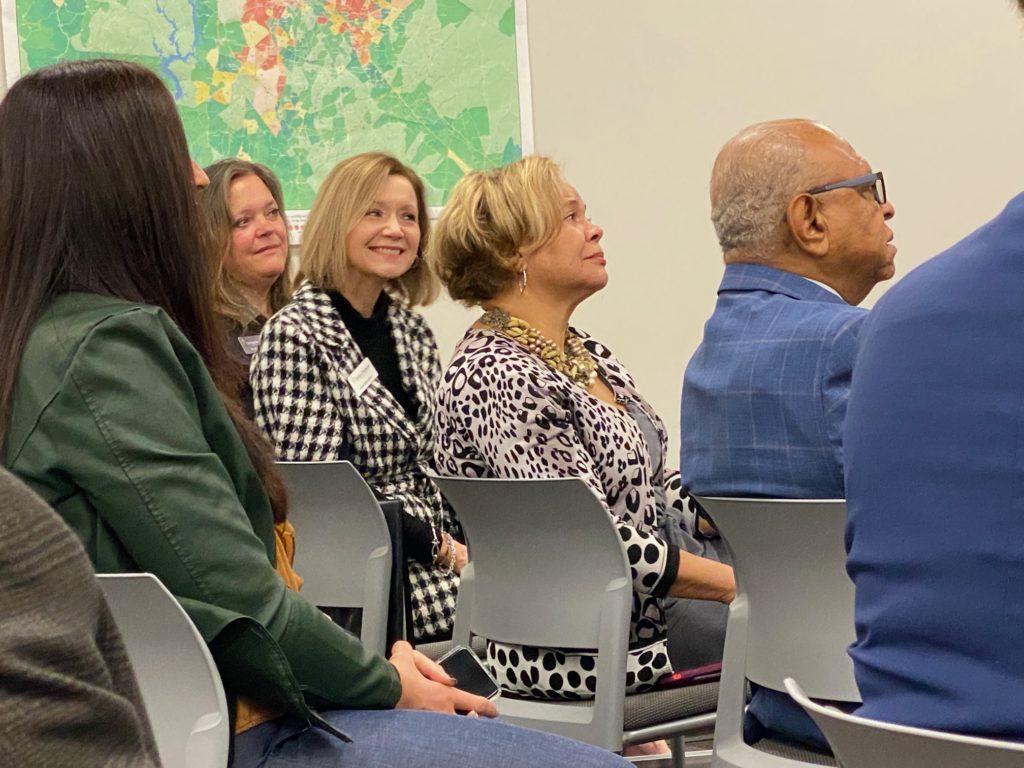



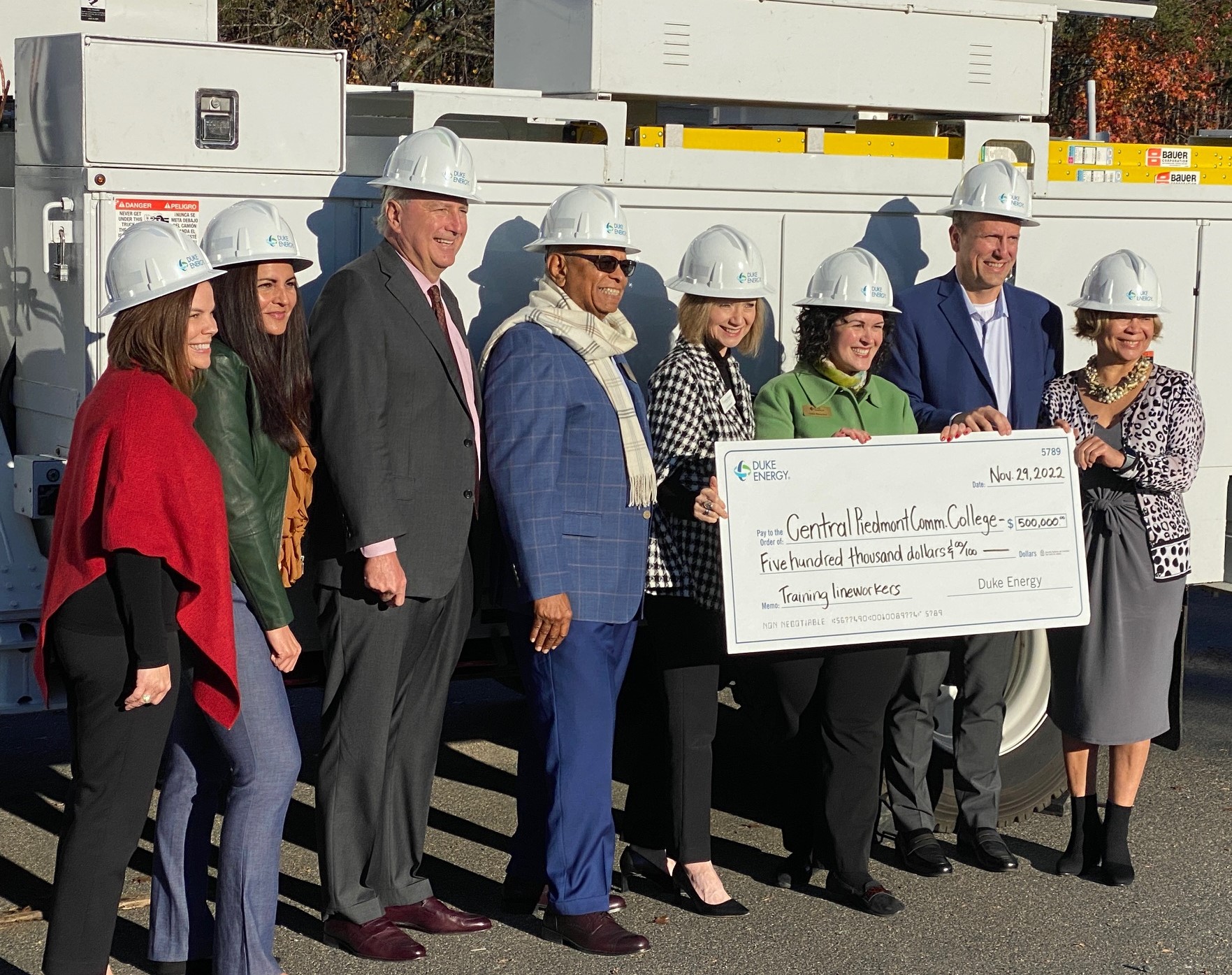



“When you look around Charlotte, you see all the cranes, all the buildings, all the housing developments. You see everybody moving here,” said Harry Sideris, an executive vice president for Duke Energy who manages customer experience. “Well, all that takes a lot of lineworkers.”
Lineworkers are our rockstars during storms when we realize we can’t take access to electricity for granted. But lineworkers will be even more critical as our state moves toward a new future for energy.
“We are undertaking the largest energy transition in the country,” said Sideris. “And that’s going to take a lot of lineworkers to build the grid that’s going to be the grid of the future.”
Many of those people who will be moving to Charlotte will be driving electric vehicles, using solar energy, and powering more and more devices with batteries.
“About 40-50% of the lineworkers in the greater Charlotte area have less than 18 months experience,” said Steve Parker, area director for Duke Energy. He is hiring 17 new lineworkers each quarter just to keep up. And that’s with energy demand right now.
The partnership between Duke Energy and Central Piedmont seeks to develop a pipeline of diverse, skilled, and talented utility lineworkers by investing in the education and career development of local residents, according to a press release.
“Public-private partnerships are the foundation of this city,” said Mayor Lyles. “We’ve got the community college working with us to adjust to this rapid change.” It’s the kind of work, she said, that opens the door to the future for students, workers, companies, and communities.
The new 16-week training program will open in spring 2023 with cohorts of 12 students. Once the program is up and running, the college hopes to graduate 144-150 students annually.
Meet Jesse Tinoco, Mandy Shuler, and Brian Moore, line technicians at Duke Energy.
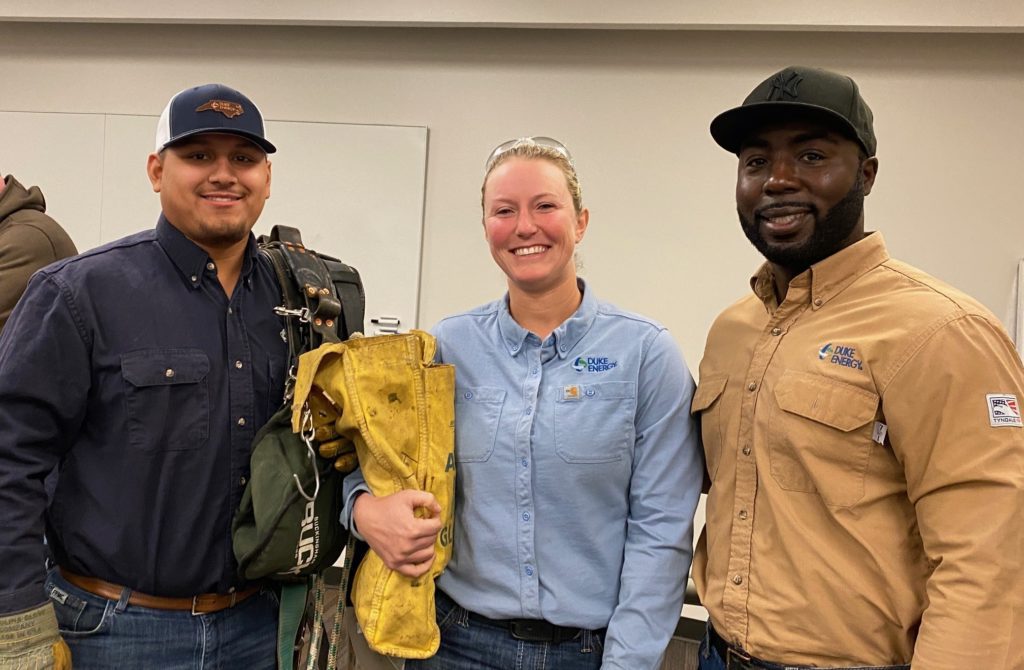

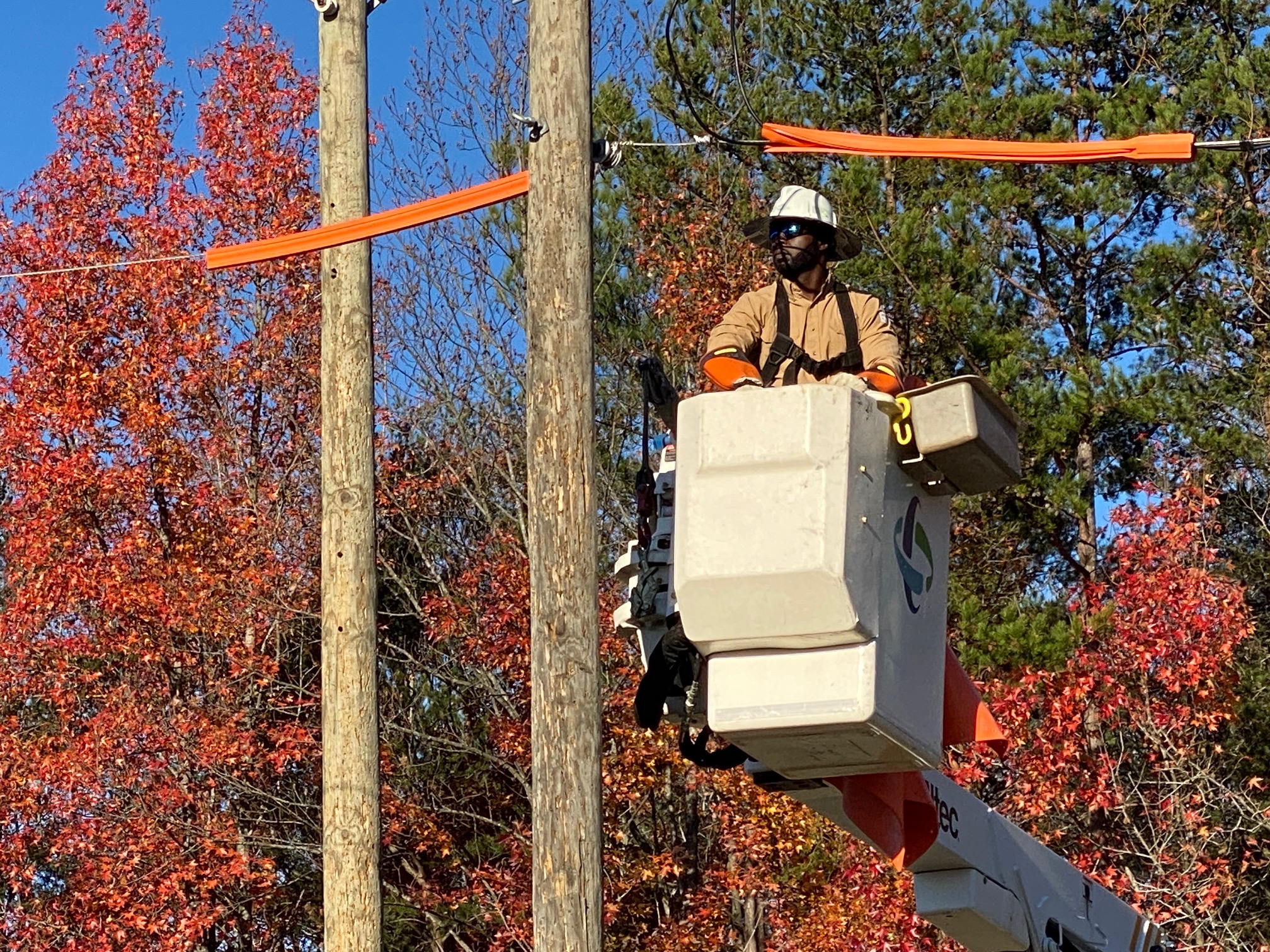



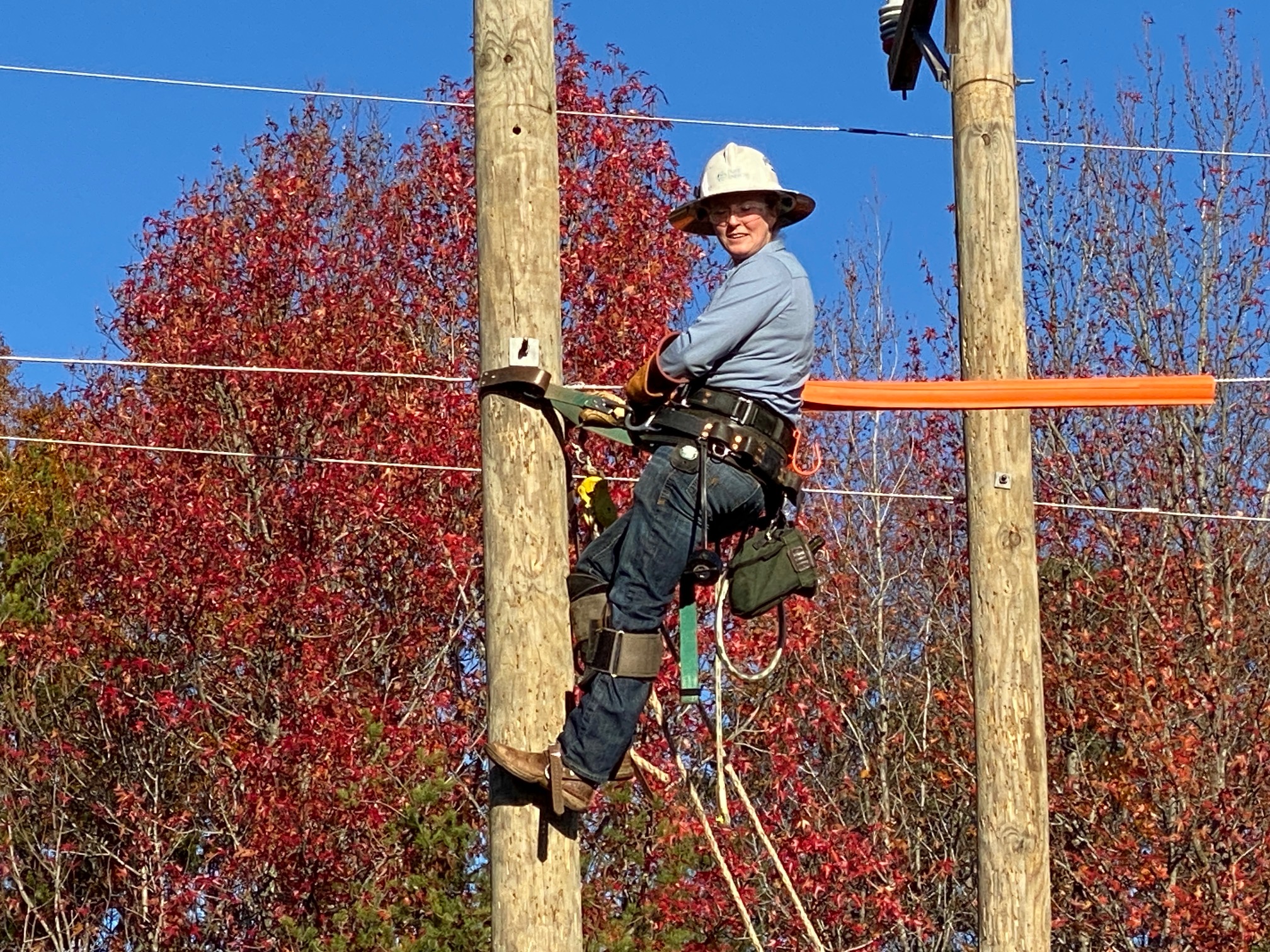

“It’s a great opportunity to get your feet in the field,” said Tinoco. “As long as you are willing to learn, it is a great career with great wages.”
Once students complete the program at Central Piedmont, orientation with the company will last just two weeks and then the students-turned-workers will be out on the job.
“This partnership program will give our diverse student body, persons right here in Charlotte, the opportunity to learn about and engage with a career pathway they may not have considered previously,” said Kandi Deitemeyer, the president of Central Piedmont. “This is a high-demand, specialized field with enormous growth potential. With utility lineworkers earning an estimated starting annual salary of $74,000, this is a career that can transform the lives of students and their families.”
With overtime, Parker said, lineworkers can earn more than six figures.
Sedaris noted the need for a diverse workforce and an inclusive work environment for that workforce. To grow the company better, he said, Duke Energy will need to look like the community.
Investments and partnerships like this one are powering pathways to economic mobility for students, economic prosperity for workers, and economic impact for communities both now and in the future.
Editor’s Note: The Duke Energy Foundation supports the work of EdNC.
Correction: This post was updated to correct the spelling of Mandy Shuler’s name.


